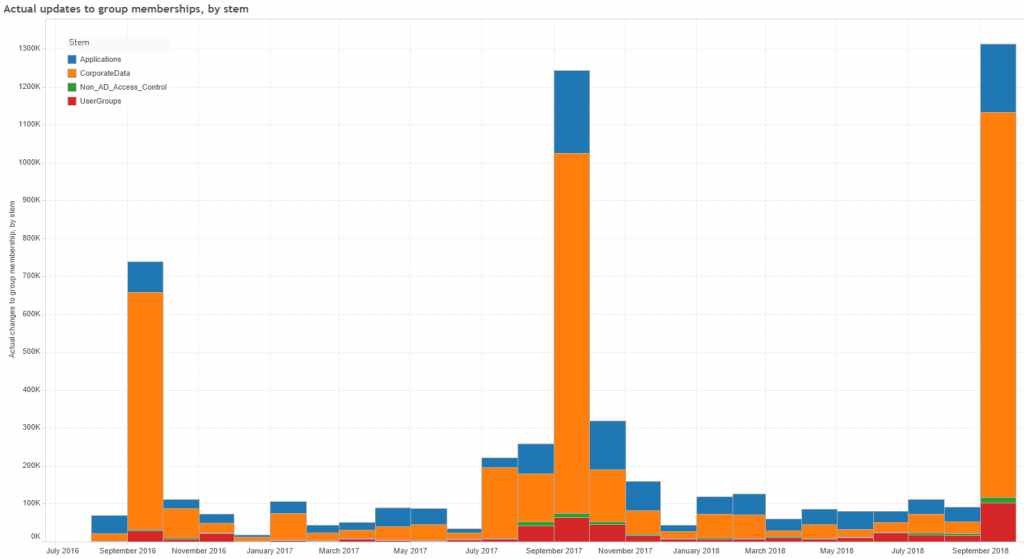It’s been pointed out to me that the impact of the Grouper to AD provisioning delays is actually not widely understood. I’ll try to sum it up here as explicitly as I can but please feel free to ask if I haven’t explained anything as well as you would’ve liked!
The delay is in provisioning new groups, changes to groups and changes to group memberships from Grouper to AD. There is no impact to existing groups and group memberships.
So, what could be affected by this?
Anything that uses AD groups in the ‘GrouperGroups’ OU for access control could be affected. Some of the things these groups are used directly to control access to include (but are not limited to) shared filestore, mailing lists, wifi, calendars, printers, PCs, software and the new Rocket HPC system (currently in pilot, I believe).
Additionally, AD’s GrouperGroups groups show up as a Shibboleth attribute which can be used to restrict access to any resources protected by the Login Gateway to a specific group of people. Known uses for this include Microsoft Imagine (formerly Dreamspark), some internal websites and some holiday booking systems. There could, of course, be others.
And what is definitely not affected?
There is no delay internal to Grouper so group memberships within Grouper are up to date. Anything relying on Grouper groups directly or via data feeds, such as some features of the mobile app or Chubb access to some buildings, will be fine.
What does all this actually mean?
Firstly, I hope that anyone who has chosen to use (or inherited) Grouper as an access control component of their service knows and understands how Grouper fits into their particular picture; if it includes AD then access to the service could be affected for new users.
It’s something to consider if an end user reports an access issue. For example, if a new member of staff can’t connect to their team’s shared filestore or they’re not receiving emails to a mailing list they should be on then the chances are they are a victim of the delay. If, however, they find that their smartcard won’t let them into Merz Court then that will be caused by something else.
I hope this has helped to clear up the impact of the delay but if not please let us know!

